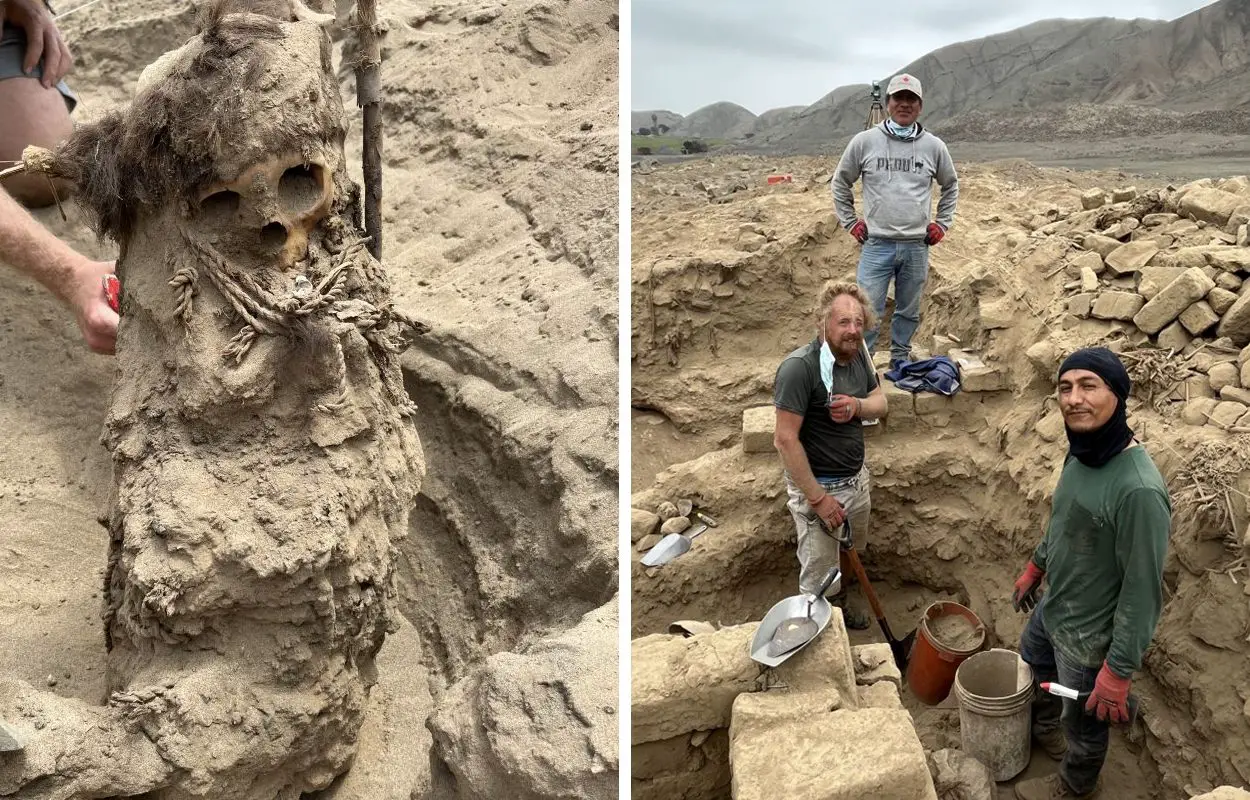A Polish-Peruvian team of archaeologists have uncovered 22 mummified burials in Barranca, Peru.
The discovery was made on the Cerro Colorado hill, where the researchers unearthed the burials in one of four mounds located in a cluster.
Bioarchaeologist, Łukasz Majchrzak, said: “The bodies are wrapped in fabrics and plant material known as burial bundles. Between the layers of the fabrics we found ceramics, tools, and cult objects placed as funerary offerings.”
The team also found corn cobs and unidentified plant materials, which were likely placed as food for the deceased on their journey to the afterlife.
Six of the burial bundles contain the remains of adults placed in the fetal position, with their upper and lower limbs tucked under their chests.
According to the researchers, the adult burials are arranged vertically, which makes them appear as if they were sitting. They all have a similar external appearance, wrapped in thick fabric and entwined with rope.
One of the adult bundles is decorated with geometric patterns, while the remaining bundles – as Majchrzak suggests – may contain representations of animals and deities.
The other 16 burial bundles mostly contain the remains of children no older than 2 years old who were placed in a horizontal position.
The team plan to use computed tomography to examine completely preserved burial bundles that have no visible damage to allow for a non-invasive anthropological analysis. In further stages, they plan to carry out a chemical and isotope analysis, including the strontium isotope, which will determine whether the burials are from a local population.
Header Image Credit : R. Dziubińska





